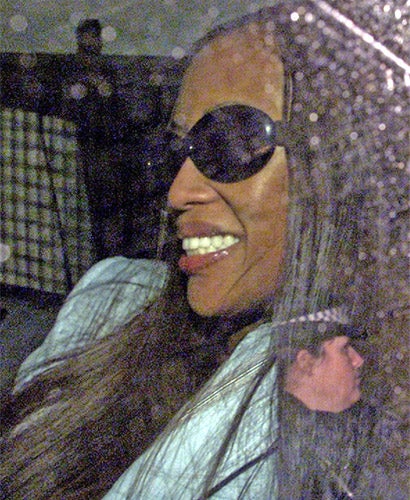Landmark for privacy laws as 'Mirror' wins Campbell case

Your support helps us to tell the story
From reproductive rights to climate change to Big Tech, The Independent is on the ground when the story is developing. Whether it's investigating the financials of Elon Musk's pro-Trump PAC or producing our latest documentary, 'The A Word', which shines a light on the American women fighting for reproductive rights, we know how important it is to parse out the facts from the messaging.
At such a critical moment in US history, we need reporters on the ground. Your donation allows us to keep sending journalists to speak to both sides of the story.
The Independent is trusted by Americans across the entire political spectrum. And unlike many other quality news outlets, we choose not to lock Americans out of our reporting and analysis with paywalls. We believe quality journalism should be available to everyone, paid for by those who can afford it.
Your support makes all the difference.Freedom of speech campaigners were last night celebrating a "landmark judgment" by the European Court of Human Rights, which overturned legal costs imposed on the Daily Mirror by the House of Lords over an article on the supermodel Naomi Campbell.
The Law Lords found in 2004 that the Mirror had breached Ms Campbell's privacy in a report on her drug addiction and ordered the paper to pay £1m in costs, including controversial "success fees" to the model's lawyers.
But yesterday the ECHR ruled that success fees were inappropriate because they had not been designed for wealthy claimants but to widen access to justice for those who cannot afford to go to court. The Strasbourg ruling is likely to lead to the introduction of means testing so rich claimants can no longer sue under Conditional Fee Agreements (CFAs).
"The requirement on Mirror Group Newspapers to pay the 'success fees', which had been agreed by Ms Campbell and her solicitors, was disproportionate to the aim sought to be achieved by the introduction of the 'success fee' system," the judges concluded.
The court said there was a risk to freedom of expression if the potential costs of defending a case risked putting pressure on the media and newspaper publishers to settle cases which could have been defended.
The ruling comes at an important time for the Government which is looking to review defamation laws amid claims that Britain has become the libel capital of the world.
"CFAs have resulted in crippling costs for publishers and stop many of them from publishing controversial stories at all," said Gugulethu Moyo, Executive Director of the Media Legal Defence Initiative. "Today's ruling should move the UK Government to enact urgent reforms to English libel and privacy laws, not only to raise the standard of proof for claimants, but also to change the rules on costs." Describing the ruling as a "landmark judgment", John Kampfner of Index on Censorship said: "Success fees have been one of the most significant chills on freedom of expression and today's ruling removes one of the greatest barriers to free speech in the UK."
Naomi Campbell's action against the Mirror, over a report published in 2001 with a photograph of her leaving a Narcotics Anonymous meeting in London, has been a defining case in English privacy law. Yesterday the ECHR upheld the Law Lords' decision to find in Ms Campbell's favour by a majority of three to two, overturning a Court of Appeal ruling that had found in favour of the newspaper. The Mirror was left with a bill for £1m but will now discuss compensation with the Government.
Gideon Benaim, of media law firm Schillings, which represented Ms Campbell, welcomed the ruling. "Nothing in the decision regarding CFAs will have a bearing on Ms Campbell's privacy case which ended long ago. What it means for future cases is to be determined but I imagine it will have an effect on access to justice."
A recent review of CFAs by Lord Justice Jackson recommended that lawyers in "no win, no fee" civil cases should not have a "success fee" paid by the defendants but should get damages.
The ruling will help protect reports by non-governmental organisations and scientists, among others, from crippling legal costs resulting from cases under CFAs. Darian Pavli, Senior Attorney at the Open Society Justice Initiative, said: "With London the world's libel capital, this is a victory for free speech well beyond Fleet Street."
Join our commenting forum
Join thought-provoking conversations, follow other Independent readers and see their replies
Comments